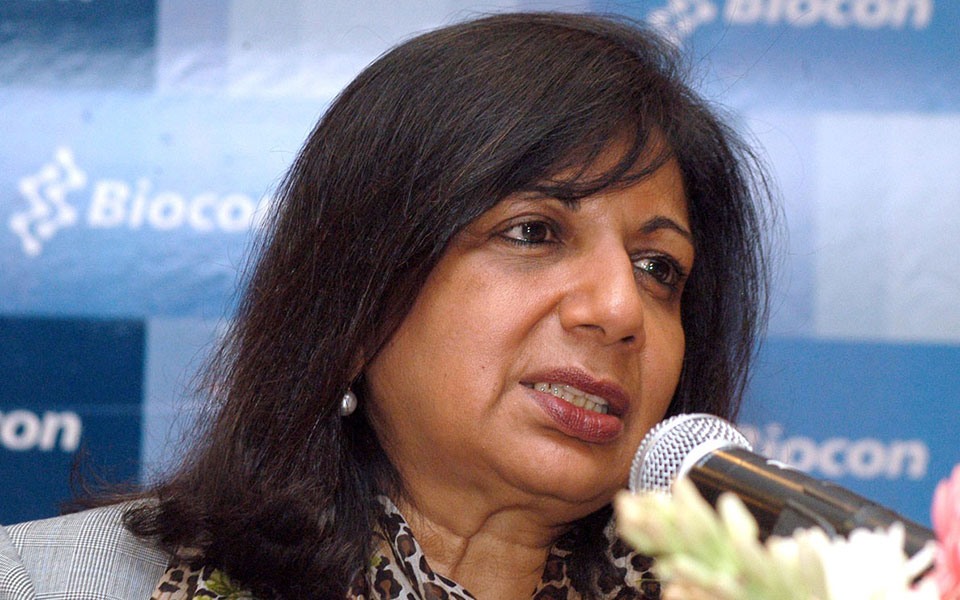Bengaluru, June 25: Biotechnology major Biocon's Chairperson Kiran Mazumdar-Shaw on Monday lamented that the state's spend on science research has remained stagnant over the past few years.
"Public expenditures on research have been stagnant -- between 0.6 per cent and 0.7 per cent of the Gross Domestic Product (GDP) -- over the past two decades. There is a greater need for the state governments to augment their spends on science research," Shaw said addressing Indian Institute of Science's (IISc) convocation ceremony here.
Overall investments in science in terms of gross expenditure on research and development (GERD), however, has been increasing over the years, she said.
"The GERD has tripled in the last decade -- from nearly Rs 24,000 crore in 2004-05 to about Rs 100,000 crore in 2016-17."
Unlike other economies, the Indian government is the primary source of science research funding as well as the primary user of those funds, she noted.
"Private investments in research and development are not encouraging either."
Quoting an analysis by a magazine, she said mere 26 companies were in the list of 2,500 research and development spenders across the world, compared to 301 Chinese companies, and that Indian universities also play a relatively small role in the country's research ecosystem.
"In most countries in the developed world, universities play a critical role in creating research talent and generating research output. Publicly funded research in India has universities largely playing a teaching role," she said.
The decision by the country which goes back to the 1950s of having Indian research institutes under different government departments and allowing universities to only teach has impaired both teaching and research in the country, Shaw said.
"This is one of the reasons why Indian universities are missing from various global rankings of top institutions of higher education."
Let the Truth be known. If you read VB and like VB, please be a VB Supporter and Help us deliver the Truth to one and all.
Kalaburagi: Four men have been arrested in Kalaburagi on charge of hacking a man with lethal weapons and pelting stones at him under the limits of Station Bazaar Police Station recently.
According to police sources, Anand Jalak Shinde (34), Ashitosh Jalak Shinde (30), Imran Mehboob Sheikh (28) and Sohaib Anwar Qureshi have been arrested. The men are accused of the brutal murder of Syed Mehboob, a resident of Station Bazaar Upper Line Hamalawadi in the city.
An FIR was filed by the Station Bazaar Police Station based on a complaint given by Syed Ismail, father of the deceased Syed Mehboob.
Following quick probe, the police team successfully arrested the suspects within 24 hours. The arrested men were produced in court and have been sent to judicial custody.
The City Police Commissionerate has appreciated in an official release the police team’s quick solving of the murder case and arrest of the four men accused of murdering Syed Mehboob.





